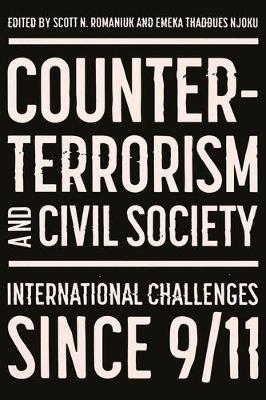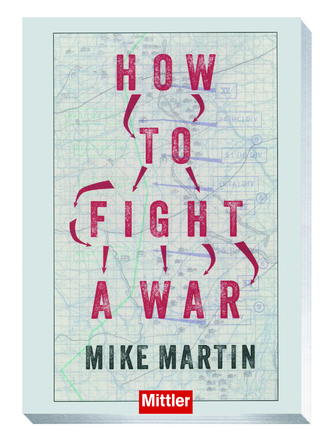
Counter-Terrorism and Civil Society
Manchester University Press (Verlag)
978-1-5261-5792-8 (ISBN)
This book examines the intersection between national and international counter-terrorism policies and civil society in numerous national and regional contexts. The 9/11 terrorist attacks against the United States in 2001 led to new waves of scholarship on the proliferation of terrorism and efforts to combat international terrorist groups, organizations, and networks. Civil society organisations have been accused of serving as ideological grounds for the recruitment of potential terrorists and a channel for terrorist financing. Consequently, states around the world have established new ranges of counter-terrorism measures that target the operations of civil society organisations exclusively.
Security practices by states have become a common trend and have assisted in the establishment of ‘best practices’ among non-liberal democratic or authoritarian states, and are deeply entrenched in their security infrastructures. In developing or newly democratized states - those deemed democratically weak or fragile - these exceptional securities measures are used as a cover for repressing opposition groups, considered by these states as threats to their national security and political power apparatuses.
This timely volume provides a detailed examination of the interplay of counter-terrorism and civil society, offering a critical discussion of the enforcement of global security measures by governments around the world. -- .
Scott N. Romaniuk is a Visiting Fellow at the University of South Wales Emeka Thaddues Njoku is a Newton International Fellow in the International Development Department at the University of Birmingham -- .
Introduction: Global Security Architectures and Civil Society Since 9/11 – Scott N. Romaniuk and Emeka Thaddues Njoku
Part I: Conceptual Platform
1 Counter-Terrorism Knows No Borders: The Post-9/11 Global Security Regime and the Securitization of Civil Society – Richard McNeil-Willson and Scott N. Romaniuk
2 Conceptualizing Non-State Counter-Terrorism – Olivier Lewis
Part II: The Cases: Civil Society and Security Governance in the Americas
3 From Ground Zero: The Impact of Security Policy on Civil Society in the United States – William A Taylor
4 Canada’s Counter-Terrorism Measures: Implications for Human Security, Civil Society, and Charities – Kawser Ahmed and Scott N. Romaniuk
5 Civil Society, Pacification Programs, and the Anti-Terrorism: Brazil’s Ambiguous Entrance in the Global War on Terror – Camila de Macedo Braga and Ana Maura Tomesani Marques
6 In the Name of Security? Counter-Insurgency Policies and Civil Society in Colombia – Saúl Mauricio Rodriguez-Hernandez and Julio-César Cepeda-Ladino
Part III: Repressive Security and Civil Society in Europe
7 The Spectacle of Ghost Security: Security Politics and British Civil Society – Joshua Skoczylis and Sam Andrews
8 Repressive Security and Civil Society in France – Priya Sara Mathews and Richard McNeil-Willson
9 Repressive Security and the Unmaking Civil Society in Contemporary Russia – Sarah L. Henderson, Scott N. Romaniuk, and Aliaksandr Novikau
10 Regional Challenges, National Reponses: The Impact of Counter-Terrorism Policy on Civil Society in the EU – Scott N. Romaniuk, Ákos Baumgartner, and Glen M. E. Duerr
Part IV: Civil Society and Security in Africa
11 Nigeria’s Counter-Terrorism Policy: A Paradox or (Sp)Oiler of Civil Society Activism? – Olajide O. Akanji
12 The Securitization of Civil Society Organizations, Islamism, and Counter-Terrorism in Kenya: A Case Study of MUHURI and HAKI Africa – Oscar Gakuo Mwangi
13 A Shrinking Space: State Security and its Effects on Civil Society in Uganda – Andrew David Omona and Scott N. Romaniuk
Part V: States of Emergency and Civil Society in North Africa, the Middle East, and Central and South Asia
14 Shrinking Civic Space: Egypt’s Counter-Terrorism Policy Post-9/11 and Beyond – Bassant Hassib
15 Safeguards or Infringement? Counter-Terrorism Policies, the State and the Civil Society in Pakistan – Zoha Waseem
16 Who Becomes the Threat?’ Counter-Terrorism Financing and Civil Society Organizations in Bangladesh – Scott N. Romaniuk, Emeka Thaddues Njoku, and Arundhati Bhattacharyya
Part VI: Closed or Closing: Security Policy and Civil Society in the Asia-Pacific Region
17 Civil Society and the Security Sector in the Philippines, Post-9/11: Dilemmas and Tensions between Democratization and Homeland Security – Aries A. Arugay
18 Two Sides of the Same Coin: The Emergence and Role of Civil and Un-Civil Society in Indonesia – Senia Febrica
Conclusion: Counter-Terrorism as Insecurity – Emeka Thaddues Njoku and Scott N. Romaniuk
Index -- .
| Erscheinungsdatum | 14.07.2021 |
|---|---|
| Zusatzinfo | 2 black & white figures; 1 table |
| Verlagsort | Manchester |
| Sprache | englisch |
| Maße | 156 x 234 mm |
| Themenwelt | Sozialwissenschaften ► Politik / Verwaltung ► Vergleichende Politikwissenschaften |
| ISBN-10 | 1-5261-5792-6 / 1526157926 |
| ISBN-13 | 978-1-5261-5792-8 / 9781526157928 |
| Zustand | Neuware |
| Haben Sie eine Frage zum Produkt? |
aus dem Bereich


